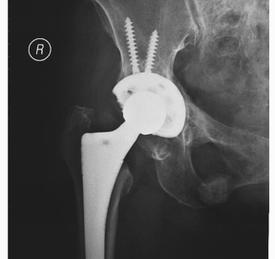Truvia

mrschappet
Posts: 488 Member
Has anyone else gotten sick or had bad side effects from using Truvia? I used it for the first time yesterday and I got horrible stomach cramps :-/ and After doing some research on it I found out how its claims of being all natural are actually false...and that it is a product from our "dear friends" at Coca Cola.... I am so sick of this companies claiming to have all natural products and just altering every ingredient in it.. or completely stretching the truth. I am sick and tired of having to research everything before i can eat it or feed it to my family. RRRR ok I'm done ranting now... but what I want to know is if anyone knows which Stevia products are the real deal and where I can find them. I am still doing my research but I though I would ask my fellow MFP too. For now I am sticking to pure cane sugar....
0
Replies
-
The stevia I've had the best luck with is the liquid kind sold at whole food stores. But it is VERY concentrated so it takes a while to adjust to using it. As far as powdered stevia I sometimes use sweetleaf brand, its more natural than Truvia, but still has added fiber. Good Luck!0
-
bump I'm interested too0
-
I've had trouble with Truvia and Splenda. I avoid both of them...they cause severe digestive issues for me!0
-
Truvia is the first sweetener that I haven't gotten a headache from. I actually like it A LOT. The texture and the fact that I can function after I eat it is a plus. I find it's VERY sweet, though. ½ pack is enough for me0
-
I have not heard any rumors about it being unnatural, but I recently found out that I am allergic to it. I noticed sever cramps and bloating after using it and did a little research. I read on WebMD that the plant used to make the sweetener is in the ragweed family.0
-
I just bought "Stevia in the Raw" because my old favorite (Sun Crystals) was discontinued & I think it is fine. My friend has also told me that the liquid kind is the best, so I will be trying that next.0
-
wow never had problem with using that, and find it intresting its not what it claims to be..
 0
0 -
I also agree with you that the marketing claims are so frustrating, and I've been doing so much more research about what's in my food - very eye opening! As for Truvia, I use it and have not had any side effects, but I'm switching to the liquid stevia anyway. I just ordered Sweet Leaf liquid stevia from Amazon. I got the plain one to use every day but also decided to try one of the flavored ones for my coffee.0
-
At the end of the day, we need to put only good into our bodies. I grew up with a chemist for a father, and so we were always very conscious of what went in our bellies. Two things my father says he will never, ever, EVER eat, no matter what are: margarine and artificial sweeteners. The two contain certain chemicals that cannot be digested.
Try using "raw" sugar, instead of the refined sugar we usually use. Butter, of course, should be used in moderation, but it is really easy for our bodies to digest (and doesn't leave harmful chemicals behind). If you're cooking, and the recipe calls for butter, substitute half of the butter for apple sauce (homemade is best).
Keep it natural, folks!0 -
"all natural"
Something that's "all natural" has limited appeal to me. Mother Nature screws up, often. If you don't want human intervention in your diet, you're gonna have to go out and strangle "it" and "it" will probably be something skinny and quite angry at you.
My preference - "the division of labor". I write software, get paid, go to a market and pay people a small sum of money for the end result of what was, perhaps, a violent and bloody struggle.
But back to the issue at hand…
This article was interesting to me:
http://www.sparkpeople.com/resource/nutrition_articles.asp?id=1273
All told, don't knock mankind's contribution to a better life. Yeh, we screw up from time to time but I'd rather get bruised by a shopping cart than run over by a feral pig.0 -
I just bought "Stevia in the Raw" because my old favorite (Sun Crystals) was discontinued & I think it is fine. My friend has also told me that the liquid kind is the best, so I will be trying that next.
I picked up sun crystals at Fred Meyer yesterday. although after my Truvia experience I am still hesitant.. I havent opened it yet and plan to research it to make sure it is as pure as it claims. I am happy that the ingredients are only two things : pure cane sugar and stevia. the problem is that some companies alter the ingredients to make it cheaper to produce mass quantities, and while I don't know this to be true for sun crystals, i cant be sure until i research it.
I am just wanting a lower calorie sweetener that is pure and simple. Is that so much to ask LOL ;-) I am reposting a post I found on here which I found to be very eye opening.. and seemed to go along with what I found upon doing my own research.
QUOTE:
24 April 2010
Truvia And PureVia Are Not Stevia
By: Bryan Marcel
.
The latest sweeteners to hit the market are Coca Cola and Cargill’s Truvia and Pepsi’s PureVia. They are both marketed as natural Stevia sweeteners. Truvia and PureVia are not Stevia. I must say that I am concerned about Truvia for several reasons. On August 17, 2007 the FDA sent a warning letter [1] to Hain Celestial Group stating that the use of Stevia in its tea products was unsafe. The FDA stated that they had concerns about Stevia’s “control of blood sugar, and effects on the reproductive, cardiovascular and renal systems”. Then in August 2009 the “FDA has concluded that there is no basis to object to the use of certain refined Stevia preparations in food” . What this means is that Stevia, which is the complete compound consisting of steviosides, rebaudiosides and glycoside is unsafe, even though it has been in use for over 1000 years. But, Coca Cola’s and Cargill’s highly refined and processed Rebaudioside A (Reb A or rebiana), which is a single component of Stevia, is perfectly safe. Really? What gives? So Reb Ain Truvia and PureVia is now okay according to the FDA, but true Stevia is still not approved except as a “herbal supplement”. I disagree, but I’ll move on.
We have to look at the history of the companies involved. Truvia is marketed as “Nature’s calorie-free sweetener”. They claim it’s all natural and made using natural processes. The Coca Cola Company has poisoned us for years with high fructose corn syrup, Splenda (sucralose) and the excitotoxin aspartame. Cargill, Coke’s partner in this venture, has paid millions of dollars to settle lawsuits for polluting our water and our air [2,3,4,5]. So if I understand this correctly, these two “model” companies woke up one day and decided that together they would change their ways and make a natural healthy sweetener, Truvia. Okay. I’ll give them the benefit of the doubt. Let’s look at what Truvia claims to be and what it really is.
Truvia has three ingredients. Erythritol, rebiana, and natural flavors. First, erythritol. According to Truvia, “Erythritol is a natural sweetener, produced by a natural process, and it is also found in fruits like grapes and pears”. Erythritol is found in fruits like grapes and pears and a few other fruits as well. The amount of erythritol found in watermelon, melon, pears and grapes ranges between 0.0022 – 0.0047% by weight [6]. In order to “harvest” 1 ounce of erythritol you would need between 13 and 28 pounds of these fruits. Since there is no plant that grows and produces erthyritol in any sizable quantity it is made by a manufacturing process. Erythritol is made from a food grade starch (from genetically modified corn) that is broken down into glucose by fermentation with moniliella pollinis, a yeast. The glucose is then broken down into erythritol. It is about 70% the sweetness of sucrose, but its purpose in Truvia is that of a filler, a bulking agent. (Fructose also occurs in fruits. Read my article, “Fructose Makes You Fat And UnHealthy” to see how your body treats a sugar that has been removed from its source).
Second, according to Truvia, “Rebiana comes from the sweet leaf of the Stevia plant, native to South America. Dried Stevia leaves are steeped in water, similar to making tea. This unlocks the best tasting part of the leaf which is then purified to provide a calorie-free sweet taste”. Rebiana or Reb A does come from the Stevia plant. But, according to FoodProductDesign.com, “While Reb A is derived from the Stevia plant, it is not the same as the Stevia that has been sold in the U.S. as a dietary supplement”. Reb A is simply part of the stevioside molecule. It isn’t Stevia. Splenda claims to be made from sugar. It did start out as a sugar molecule, and then in a five step process three chlorine molecules were added. The end result not being anything remotely close to sugar. Truvia is using the same logic-stretching technique. Rebiana isn’t the Stevia that you have heard about for years. It is also true that the Stevia plant is native to South America. What they don’t tell you is that 80% of all Stevia comes from China. I don’t trust China to safely produce any food product. They have proven time and time again over the past several years that they cannot be trusted to make safe, quality products. There are also many genetically modified forms of Stevia being grown. Genetic modification alters the plant at the cellular level. It’s not known what, if any, long-term health implications genetic modification will have. Europe has banned many genetically modified foods. Those that they do allow require labels informing the consumer. I have written Truvia asking if their Stevia is grown in China and if they use genetically modified plants. If I ever get a response, I will post it.
In the meantime it is safe to assume that their Stevia is grown in China and is genetically modified.
Truvia claims that the process used to make rebiana is “similar to making tea”. Please define “similar”. According to Coca Cola’s U.S. patent application [7] method for purifying Truvia’s rebiana is a 42 step process that includes the use of acetone, acetonitrile, metanol, ethanol (yes, the same that you put in your gas tank) and isopropanol (rubbing alcohol). The side effects of exposure to these substances ranges from suppression of the central nervous system to death. Now I don’t know about you, but I personally don’t use any of these substances when I make tea. It is curious though, that Coca Cola filed this patent for rebiana on May 21, 2007 and three months later (August 17, 2007) the real Stevia was ruled unsafe, but rebiana was approved. The “purification process” results in rebiana being 95% pure. Because of this it is about 400 times sweeter than sugar. Truvia claims that each packet of Truvia is twice as sweet as sugar. Let’s do the math. Rebiana is 400 times sweeter than sugar. Truvia as a final product is twice as sweet as sugar. So 400 divided by 2 is 200. One packet of pure rebiana would then be the equivalent of 200 packets of sugar. Try this at home. Empty one sugar packet onto a plate. Divide the sugar on the plate into 200 equal portions. One portion of the 200 is the miniscule amount of rebiana in a single packet of Truvia. So what is in the rest of the Truvia packet? All ingredients are required to be listed in order of predominance. So the first ingredient in any food product is what that product has the most of. Then the ingredients are listed in descending order. With Truvia, the first ingredient is erythritol. Erythritol is mainly what Truvia is made of, followed by a very distant miniscule amount of rebiana, and in turn by even less natural flavor.
And that brings us to the last ingredient, natural flavor. Truvia’s website says that “natural flavors are used to bring out the best of Truvia, like pepper or salt or any other spice that would be used to heighten the taste of food”. The U.S. Code of Federal Regulations defines natural flavor as: “any product which contains the flavoring constituents derived from a spice, fruit or fruit juice, vegetable or vegetable juice … whose significant function in food is for flavoring rather than nutritional”. Sounds very natural, but look closer. “Flavoring constituents derived” says what a natural flavor really is: The chemical equivalent of a natural flavor. Natural flavors are made in a laboratory. What the natural flavor is doesn’t have to be listed because they are considered to be trade secrets. The only time that you will ever see “natural flavor” listed on a food ingredient label is when there are no real natural flavors. But it is resourceful for Truvia’s to compare their natural flavor to pepper or salt. As a side note, an artificial flavor is the chemical equivalent of a flavor that is not from a spice, fruit, vegetable, etc, but also made in a lab.
Truvia uses the word “natural” a lot on their website and packaging. Most people don’t realize that with the exception of meat that the word “natural” has no meaning. I have shown you how Truvia is made. Truvia doesn’t seem at all “natural” to me. You won’t find Truvia in nature. Even with genetic modification you can’t grow it. The Truvia website and packaging has been very carefully worded. They bend the truth and make inferences, but they never quite lie. People read their information and see what they want to see. Hence the use of pictures of Stevia leaves and all the “green” on the box and website.
Although the majority of this article is about Coca Cola’s Truvia, don’t count out their competitor PepsiCo. PepsiCo has entered into a partnership with Whole Earth Sweetener Company to jointly own and market PureVia, their version of essentially the same product. The difference is that PureVia uses dextrose, a simple sugar instead of erythritol as the primary sweetener. Whole Earth Sweetener Company is owned by the Merisant Company, the makers of Equal. Equal contains apartmane, a multipotential carcinogenic. So don’t let all of the feel-good natural claims on their websites fool you. Truvia and PureVia are just another scam on the consumer. These products are marketed as Stevia sweeteners and they are anything but that. If you want Stevia, then look for Stevia extract or stevioside on the ingredient label. I think that real Stevia is fine in moderation. Erythritol is fine in its natural form in fruit. But when you take a component of a fruit, like erythritol, that makes up less than 0.0047% of that fruit and you make it the primary ingredient in your new sweetener, no one knows how the human body will react to it long term. (But our experience with fructose and high fructose corn syrup may be some indication.) This is not the Stevia with its 1000+ year history. Truvia and PureVia are new chemical concoctions that have no history and no track record. Besides that, these sweeteners totally miss the point. The goal is better health through a healthy diet. The best way to achieve that in regards to sweeteners is to keep it simple and reduce consumption.
Truvia and PureVia are just products designed to keep you consuming things that aren’t any good for you under the premise of reduced calories. Use raw honey, raw sugar, and real Stevia sparingly. Leave the Truvia and PureVia on the store shelf next to all the other man made artificial sweeteners where they belong.0 -
Thanks for the article! I definately try to stay natural & I've had a bad feeling about Truvia & PureVia since they came out. Always wondered why it was supposed to be Stevia, but had several other ingredients!0
-
I continue to use real, natural sugar. I did switch to what they call raw sugar. It's only 16 calories per tsp and I just feel better about using it. I just use less of it. The only things that I use that are low calorie are Saralee delight multigrain bread and Land O Lakes light butter with canola oil. I stay away from artificial sweetners and any thing low fat or fat free. I'm still losing weight and I just feel better about those choices.0
-
I also stay the heck away from Truvia because it’s not all natural and it has a funny after taste so I use the organic kind you can find at Whole Foods or Lassen’s I think it’s called Sweet leaf...
Splenda is poison!0 -
My dad bought a pack of Truvia and said he couldn't taste it, so gave it to me to try...I used it in a smoothie I made once, and couldn't even taste it, so I gave up on that. And then I tried it in my iced coffee, and when I noticed it didn't dissolve, I was turned off to it. It's sitting on my shelf now, collecting dust.

I personally stay away from artificial sweeteners like Splenda, Sweet N Low, etc. I don't like the taste, and I've heard way too many bad things about them. But I'm also trying to avoid diabetes, so I'm trying to find sugar substitutes, while not eliminating sugar altogether.
I've heard a lot about agave nectar, and I've been seeing it pop up everywhere in stores lately (or maybe I'm just now noticing it, haha)...don't know much about it, but I plan on looking it up, soon. 0
0
This discussion has been closed.
Categories
- All Categories
- 1.4M Health, Wellness and Goals
- 394.1K Introduce Yourself
- 43.9K Getting Started
- 260.4K Health and Weight Loss
- 176.1K Food and Nutrition
- 47.5K Recipes
- 232.6K Fitness and Exercise
- 437 Sleep, Mindfulness and Overall Wellness
- 6.5K Goal: Maintaining Weight
- 8.6K Goal: Gaining Weight and Body Building
- 153.1K Motivation and Support
- 8.1K Challenges
- 1.3K Debate Club
- 96.4K Chit-Chat
- 2.5K Fun and Games
- 3.9K MyFitnessPal Information
- 15 News and Announcements
- 1.2K Feature Suggestions and Ideas
- 2.7K MyFitnessPal Tech Support Questions












